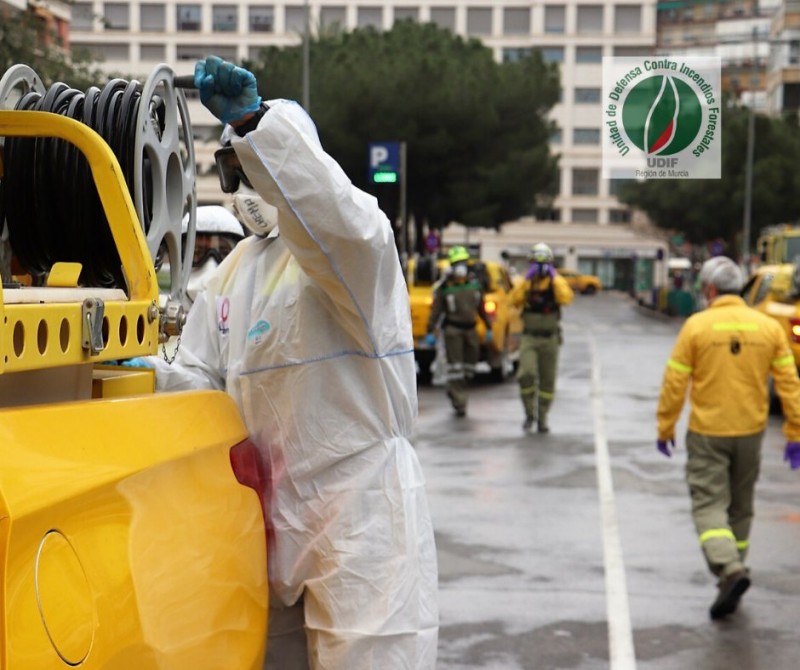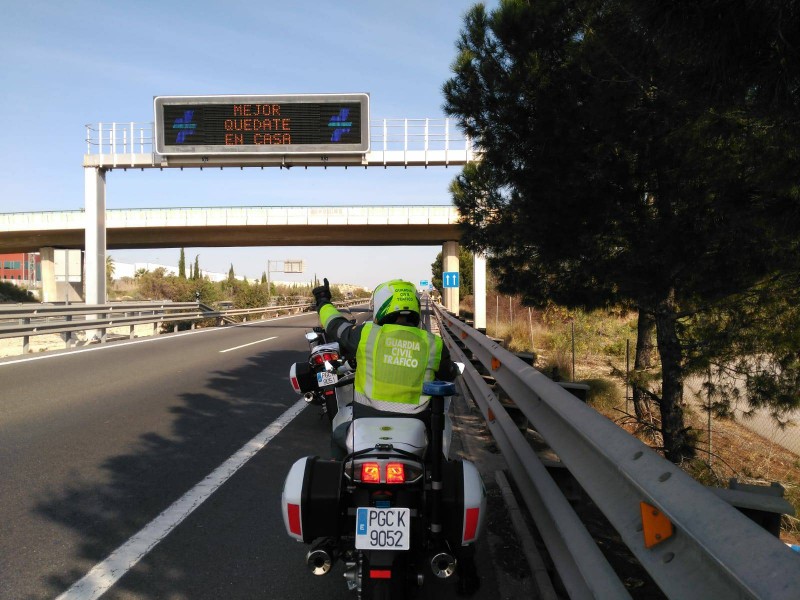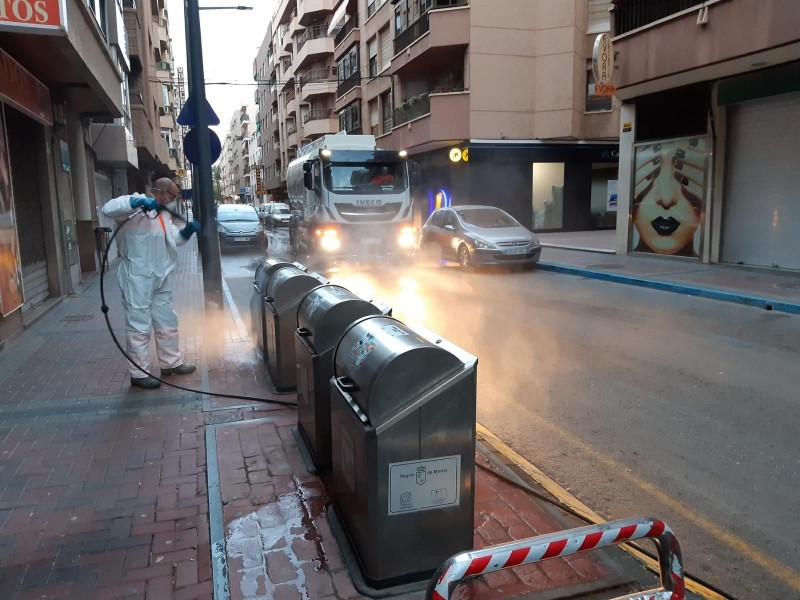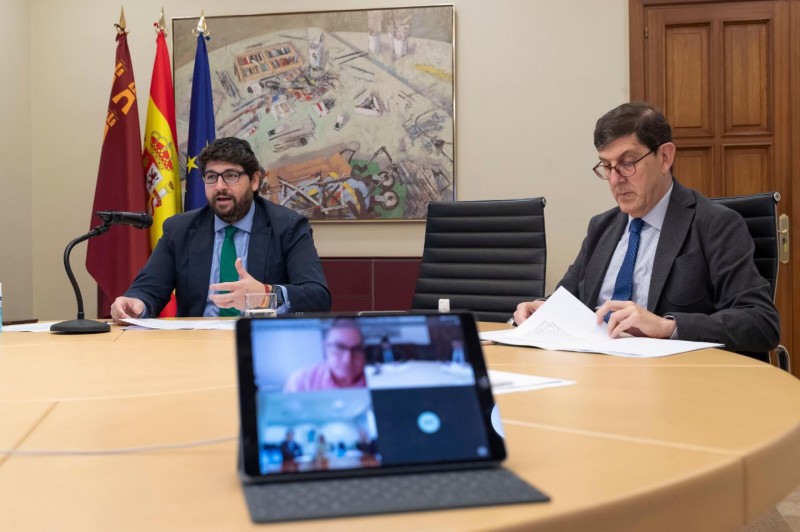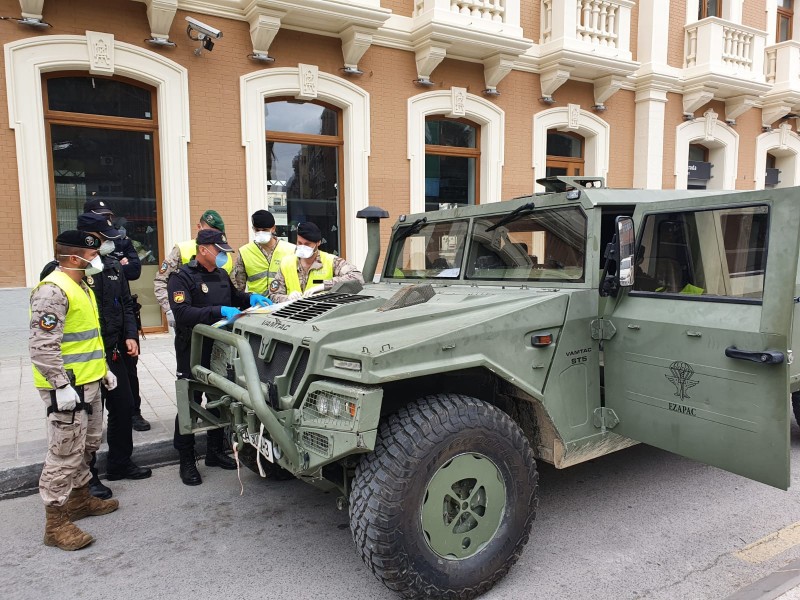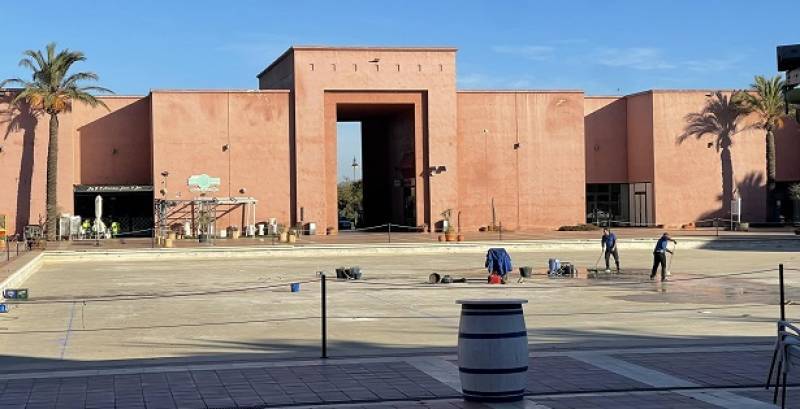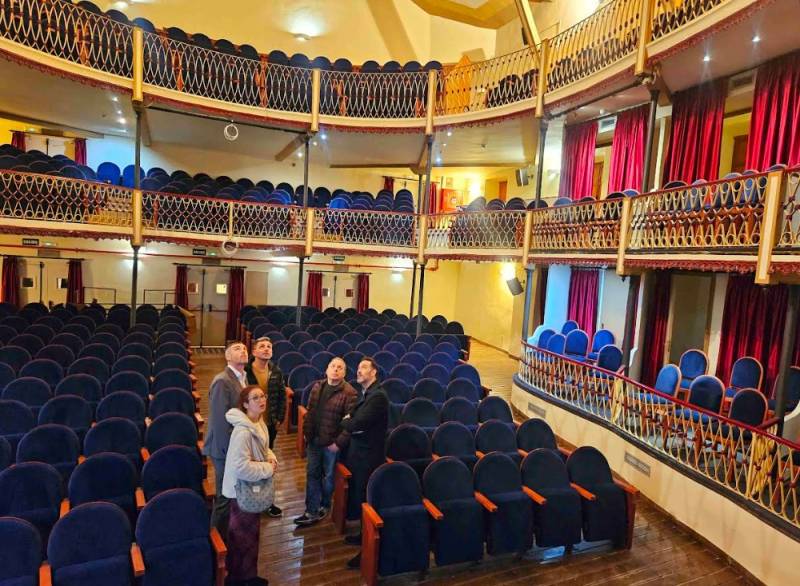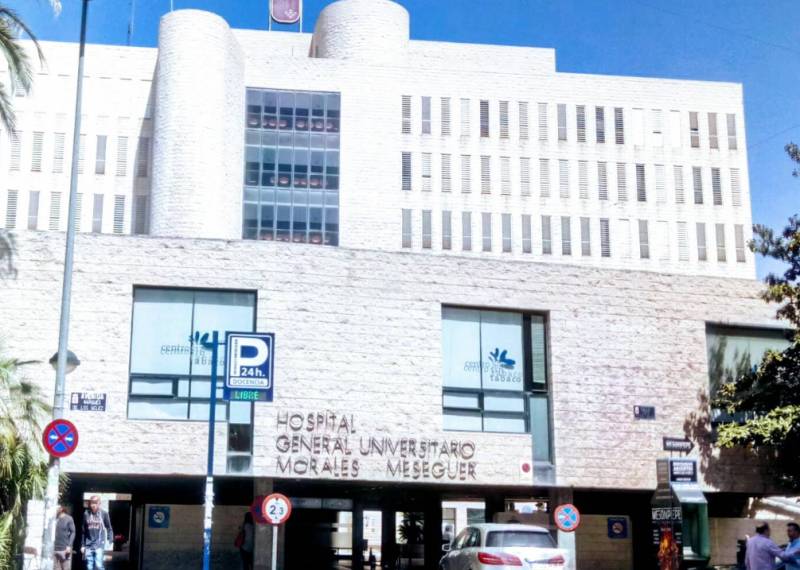Date Published: 22/03/2020
ARCHIVED - The last ever FREE Murcia Today news bulletin - a Coronavirus special
ARCHIVED ARTICLE 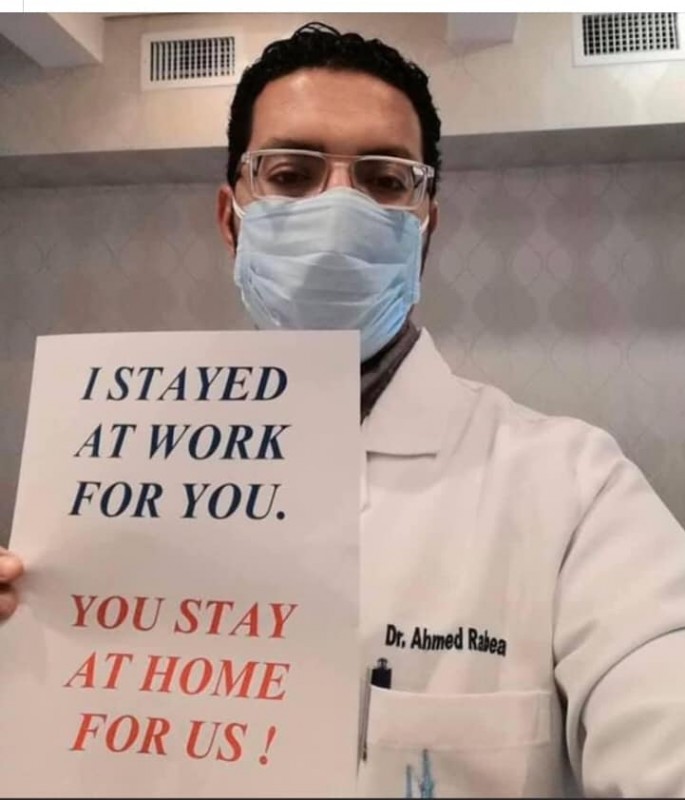
What a life-changing week.
We all watched the spread of Covid-19 in China on television, but somehow it didn´t feel as though it was of any relevance to our own lives until cases started to appear in Spain and our own “home countries”.
On 31st January a German tourist in the Canary Islands who was linked to the Wuhan outbreak in China tested positive. On 9th February a British man in the Balearic Islands tested positive and on 13th February Spain experienced its first death; a man who had contracted the virus in Nepal before returning to Valencia. Just a few cases, all linked to the Chinese outbreak. Still a long way from reality for most of us.
Then on 24th February it all changed when the virus started to surge in the Lombardy area of Italy and four cases linked to this Italian cluster appeared in Spain in the Canary Islands, Valencia, Madrid and Cataluña. Within days Andalucía, Castilla y León, Asturias, the Basque Country, Cantabria and Navarra had all announced their first cases and the patient count started to rise.
By the 1st March Spain had 85 cases. By 5th March this had risen to 282, by the 10th to 1,695, and by Thursday 12th March there were 3,146 cases.
By the 12th March many sporting fixtures had been cancelled, La Liga suspended, the Copa del Rey postponed and top Spanish footballers were starting to test positive. What, no football?????? Suddenly, this was getting serious!
With cases reported all across the country 14 of Spain’s 17 Autonomous regional governments decided to suspend school and by late afternoon the Spanish government had ordered the closure of all educational establishments to limit the spread of the virus.
The King and Queen of Spain were tested after meeting with an infectious German Minister, the wife of the prime minister and several key politicians were found to be positive, the Mayoress of Barcelona went into isolation, the Ibex 35 fell by 14%, the biggest single day drop ever recorded, the Interior Ministry closed all jails off from the outside world and the Spanish enclaves on the Moroccan coast closed off their traffic to stop the spread.
At midday on Friday 13th March there were 5,232 cases, every province in Spain confirming positive tests and the seriousness of the situation could no longer be ignored.
By now, Madrid was awash with more than 2,000 cases, closing cultural centres, museums, parks and sporting installations having done little to halt the multiplication of incidents, so the Mayor of Madrid ordered the closure of bars and restaurants, announcing his willingness to lockdown the whole city if he had to.
During the summer the Spanish Costas have historically welcomed millions of Spanish domestic holidaymakers. Following the end of the Dictatorship in 1975 construction of second holiday homes boomed on the coasts of Cataluña (including Barcelona), the Valencia Region which includes Castellón, Valencia and Alicante provinces (Costa Blanca), the Region of Murcia (Costa Cálida) and the vast Andalucía Region, which stretches all the way from Almería down to Cádiz (Costa del Sol), many of the properties purchased as second homes by not only wealthier families in Madrid, but also the principal interior cities of inland Spain.
Although Spaniards joke about the “nine months of winter and three months of hell”( nueve meses de invierno y tres de infierno)it’s a fact that inland Spain is baking hot in the summer and freezing cold in the winter, hence the popularity of the sunny costas for weekend breaks and summer holidays.
The prospect of being locked up in small city apartments with no entertainments and their kids at home into the bargain was too much for many families, and on Thursday evening thousands of Madrileneans packed their kids into the car and headed for the costas to their holiday apartments where they thought they could enjoy a better lifestyle, bringing their contagion with them!
The reaction was one of horror right along the Spanish coast as the regions of Murcia, Valencia, Cataluña and Andalucía found themselves inundated with cars full of potentially contagious Madrileneans, who swarmed into supermarkets and shops seeking provisions.
Here in Murcia they packed into tourist offices, asking for street maps and the entertainments which were being laid on to amuse them; by lunchtime many tourist offices had closed amidst fears that staff were being exposed to potential contagion and the president of the Region of Murcia held a press conference, to announce a lockdown of coastal municipalities, visibly furious at the situation, “the confinement will affect anyone already inside the containment areas and is for everybody, because of the irresponsible behaviour of some people” the regional president said to the media, “I am going to do what I have to do to protect my people, the million and a half Murcianos who live here.”
Águilas, San Pedro del Pinatar, San Javier, Los Alcázares, Cartagena, La Unión and Mazarrón were locked down for 14 days, with all shops and businesses closed apart from those selling food and essential services and residents confined to their homes.
Cataluña responded to the influx by asking the Spanish government to close all of the ports, railways and airports in its region to keep out these unwanted holidaymakers, beaches were cordoned off in Valencia and Andalucía as local councils fought to keep the unwanted visitors out of their coastal communities. Asturias, also a popular holiday destination with Spanish families, along with Cantabria, Galicia and Cataluña all followed the Murcian government and announced the closure of shops until further notice. The Basque Country declared a sanitary emergency and declared that it would be confining part of its population and by mid-afternoon the Spanish Prime Minister Pedro Sánchez announced that he would request a Declaration of Emergency from the Cabinet on Saturday morning.
On Saturday morning the Spanish Cabinet supported the declaration of a 15 day- long State of Emergency for all of Spain and here in Murcia the lockdown was extended across the whole region following requests from Mayors of the remaining municipalities for the same measures as the coastal areas to protect their own populations.
Only once before since the restoration of democracy after the death of General Franco in 1975 has the Spanish government declared a “state of alarm” (or a national emergency) - that was during the air traffic controllers’ strike in 2010, when the military were empowered to take over duties at airports throughout the country, the declaration giving the government wide-ranging powers to:
- Limit the circulation and location of people and vehicles in certain place and times
- Temporarily commandeer and confiscate possessions and enlist people for specific tasks
- Occupy industrial premises, factories, workshops and any other kind of premises
- Limit or ration the use and purchase of important goods and products
- Take whatever steps are necessary in order to guarantee food supplies and the correct functioning of production facilities.
-Effectively restrict the movement of citizens, close shops and businesses, and lock down the country.
The announcement provoked travel chaos, with airlines turning back planes en-route to Spain and large queues forming on major thoroughfares as travellers left the country to try and return back to their country of origin.
Tourist events were cancelled everywhere, the Semana Santa celebrations which are such a fundamental part of Spanish culture cancelled in many locations including Murcia, and by Sunday even Seville had cancelled its Feria de Abril for the first time ever.
Monday 16th dawned with 9,942 cases, the Interior Minister, now in charge of the Armed Forces, Guardia Civíl, Policia Local and Military Emergencies service nationwide announcing that Spain would be closing its land borders at midnight.
Confined within their homes, Spaniards gathered on balconies to loudly applaud their health workers and all those charged with enforcing the compulsory lockdown as they have done every night since.
Although there is widespread acceptance that the decision will cost the country billions economically, saving lives is the priority, and there is considerable respect for those who must continue to work during this period, exposing themselves to contagion by working in shops to ensure food and essential services are available for everyone else, to the forces of law and order who themselves are at risk from contagion enforcing the lockdown, to the drivers who must deliver food supplies, the agricultural workers who must keep working to grow food and the manufacturers who must make it, as well as the emergency and medical services who are working flat out to assist those found to have contracted the virus. As of tonight Sunday 22nd, 2 young Guardia Civíl officers have died from coronavirus and 12% of confirmed cases are medical workers.
By Monday there was travel chaos, as airlines cancelled Spanish flights and this has continued throughout the week. Ryanair has announced that flights to Spain are likely to cease altogether on Thursday 26th March and thousands of passengers have been frantically trying to rebook flights and get back home, as have travellers and Spanish nationals stuck abroad trying to get back to Spain.
Traffic through the airport at Corvera has slowed to a trickle, one flight reportedly landing here with just one passenger, but departing full and realistically any readers still trying to get flights out of Spain within our normal catchment area are advised to look at flights departing from Alicante and do so quickly.
Spain is keeping its airports open for the moment to facilitate the repatriation flights of its own citizens from abroad, but be under no illusion, if you have flights booked for 2 weeks from now the chances of them actually taking off are virtually zero, so be realistic and move now if you want to try and move at all. The Balearic Islands has stopped all flights, the Canary Islands are only running absolutely minimal flights, and everywhere else flights have fallen off departure board like leaves off an Autumn tree.
As the week has moved on a succession of measures have been implemented, Spain closing down all cruise ports to prevent cruise ships docking, dozens of countries refusing to allow Spanish citizens to travel there as the number of cases grew, Spain reaching agreement with Europe to remove internal barriers after lorries backed up for kilometres at check points in order to facilitate the movement of merchant traffic, and although ferry passengers are still crossing the channel, any readers thinking about trying to drive back to the UK are advised to stay where they are as the Foreign Office has issued an exceptional travel advisory notice, warning British nationals against all but essential international travel. As they quite rightly state, any country or area could restrict travel without notice and nobody wants to be stuck in a French service station for a month with the Mother in Law in the back seat!
On the 20th March Spain passed the 1,000 deaths mark.
At this exact moment there are 28,572 cases reported across Spain, but in less than an hour the latest figures will be released, and it will be a big surprise if the numbers remain below 30,000.
1,753 people have died and more importantly in many ways, 2,575 people have recovered.
Sadly, 12% of those affected are health workers according to the director of the national centre for emergency co-ordination and the virus is affecting all ages and social backgrounds; tonight it was revealed that opera singer Placido Domingo is amongst those testing positive, along with several top footballers and politicians.
But nobody is under any illusions that “the worst is yet to come and will test us to the limit of our capabilities” as we were told yesterday by the Prime Minister and today he announced that the State of Emergency will be extended until 12th April.
A State of Emergency can only be applied in 15 day blocks, so the situation may continue yet further, but at the moment this leaves all of us in Spain locked down until the 12th April unless there is a sudden and unexpected drop in the number of cases.
The government isn´t expecting that to happen and announced yesterday that it had managed to obtain 640,000 rapid testing kits to help the regional health services rapidly identify where they have clusters of contagion which can give results in 15 minutes and is buying four robots capable of doing 80,000 tests a day.
52,000 additional health service personnel have been contracted to try and boost the resources of the medical service and today the first field hospital in Madrid began receiving patients.
The government will also reinforce the powers of the military to enforce the lockdown and support the logistical needs of the country during the coming weeks, so expect to see the army highly visible in the streets as they enforce lockdown rigidly.
During the week we have seen a change in attitude from the forces of law and order; after allowing the public a period of adjustment, an attitude of low tolerance to infringements of the State of Emergency is starting to creep in and the extension of the period is likely to result in considerably more fines being issued for those who do not observe the lockdown.
There are plenty of articles in the news section dealing with all of the major queries found on social media this week, with full information about what is and isn´t permitted, how many people can travel in a car, opening hours of supermarkets and post offices, updated information from the Foreign Office and airlines about travel, and much much more, all brought to you free of charge on the www.murciatoday.com site in English.
Which is where this bulletin, the LAST EVER FREE BULLETIN is going to end.
This week the government has announced 200 billion euros worth of support for businesses and autonomos, approving minimum income levels for the self-employed and helping businesses to make it easier to shed staff via the ERTE temporary redundancy notices which will enable them to reduce costs and try to keep their businesses afloat during what everybody now accepts will be a brutal period of adjustment following the lockdowns.
Our government here has prioritised lives over profit, but the price we will have to pay for that is undeniably recession, hardship and economic turmoil. The tourist industry is in tatters, with hotels, camping sites, restaurants, bars and leisure locations closed for at least the next three weeks. There will be no Semana Santa and we’ll be lucky if there are any airlines left after all this turmoil, so nobody is under any illusion that hard times are ahead.
We know that our capacity to continue generating content depends100% on the amount of revenue we can generate, and although we have successfully managed to deliver this bulletin free of charge for 11 years, and last year attracted 2, 500,000 absolutely unique readers to our site, the reality of the digital world is that everybody wants your product but nobody wants to pay for it.
Well, from now on, giving it free is no longer an option as it costs too much to produce and we know full well that we will be unable to pay for the creation of the content given the current loss of advertising revenue, so from now on, if you want this service to continue it can only do so in a paid subscription format.
We have set the price at 1 ½ to 2 cups of coffee a month if you drink in a normal Murcian café, or half a cup of coffee if you prefer the lounges of a posh golf resort. It’s up to you. Its 24 euros a year and we absolutely believe that it’s well worth the money we ask given the high costs of writing all the articles which join together to make the news bullet and what’s on bulletin.
If you want it, we’ll carry on, if you decide you don´t, we’ll stop it.
Only those who subscribe will receive it. Everyone else won´t. We’re not asking for support, we’re simply asking whether you find this product of sufficient interest and use to pay for it. We don´t want donations, we want work and we want to keep producing this bulletin for you.
At the moment we have enough commitments to maintain www.murciatoday.com in a slightly reduced format and keep it free, but would very much like to continue servicing the expat community with information in English as we have done for 11 years. If those who read the bulletin do want to pay for it, then the content we can generate for the site as well will considerably more!
Simples.
So, this is it, the last sentence in the last free bulletin, what is there to say other than thank you to all the businesses who have advertised with us or given us translation work so that we can inform the expat community about everything related to Murcia, what a great place it is, how much we love being here and how much we want to stay here and keep doing this job for our readers in English.
PS. LOCKDOWN MEANS LOCKDOWN. STAY AT HOME. STAY SAFE AND RESPECT THE MEDICAL WORKERS WHO ARE PUTTING THEIR LIVES AT RISK TO KEEP US ALL SAFE BY RESPECTING THE LOCKDOWN.
Follow Murcia Today on Facebook to keep up to date with all the latest updates locally for the Region of Murcia and the main information for the rest of Spain: https://www.facebook.com/MurciaToday/. Our local area groups are as follows. These are designed to filter locally specific information and may be used by clubs, charities, any of the businesses who work with us to ensure information is available to residents in English and for those living in the specific areas. They are not buy and sell groups, do not accept any bickering or argumentative so and so's, and are not "open for any old rubbish" pages, they are specifically for sharing good local information. Around Mazarrón news, events and local info: Click to join Mazarrón, Fuente Álamo, Águilas, Lorca, Totana, Puerto Lumbreras, Camposol, Alhama de Murcia. Click to join (all within a half hour drive of each other) Mar Menor news, events and local info. Click to join (this includes all the Mar Menor municipalities and Cartagena) North-west Murcia: Bullas, Mula, Cehegin, Caravaca, Cieza, Calasparra, Jumilla, Moratalla info. Click to join Follow Murcia Today on Facebook to keep up to date with all the latest updates locally for the Region of Murcia and the main information for the rest of Spain: https://www.facebook.com/MurciaToday/. Please note. Sharing information at this time of crisis is paramount and we would hope that readers would share our news posts in any groups they have access to themselves; this crisis is affecting all businesses, including this one!!! What to do if you are in the Region of Murcia and believe you may have contracted the virus The regional government has set up a special helpline to supply information to members of the public (900 121212), and also urges people to call the 112 emergency services line if they suspect that they may have contracted the virus rather than going straight to hospital or to a medical centre. Medical staff will be sent to your home to test for the virus.
article_detail

|


 Spanish News Today
Spanish News Today
 Alicante Today
Alicante Today
 Andalucia Today
Andalucia Today
